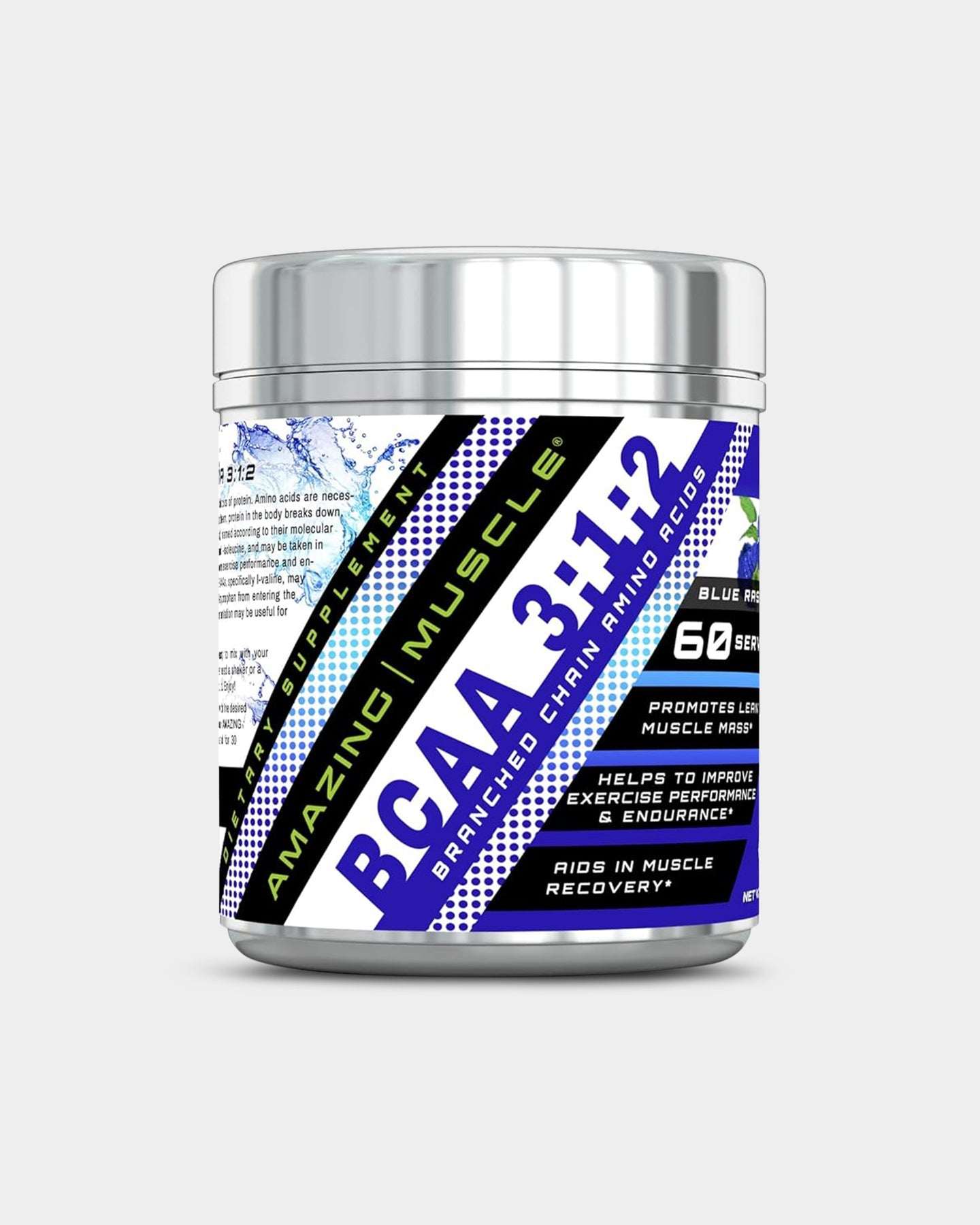Effective Ways to Use BCAA for Improved Muscle Recovery in 2025
In the world of fitness and bodybuilding, ensuring optimal recovery after intense training is crucial for muscle growth and performance. Branched-Chain Amino Acids (BCAAs) have emerged as a popular supplement for promoting muscle recovery and enhancing athletic performance. These essential amino acids—leucine, isoleucine, and valine—play a vital role in muscle protein synthesis and can significantly impact recovery times, muscle soreness, and overall fitness outcomes. This article will explore the BCAA Vorteile, their mechanisms of action, and effective ways to integrate them into your routine for improved results in 2025. Additionally, we’ll discuss BCAA supplementation strategies, including dosage and timing for optimal outcomes.
Understanding the BCAA Wirkung is essential for athletes looking to maximize their performance and improve recovery. The benefits of BCAAs include reducing muscle protein breakdown during workouts, supporting muscle growth, and decreasing exercise-induced fatigue. Whether you are an amateur fitness enthusiast or a competitive athlete, knowing how to effectively use BCAAs can make a significant difference in your training. The following sections will cover how to incorporate BCAAs into your regimen, their impact on recovery, and comparisons with other popular protein supplements.

Understanding BCAAs and Their Benefits for Muscle Recovery
What Are BCAAs?
BCAAs are a group of three essential amino acids: leucine, isoleucine, and valine. These amino acids are unique because they are primarily metabolized in the muscle rather than the liver, which makes them especially beneficial during and after exercise. They are essential nutrients that play a critical role in muscle recovery and performance enhancement. Research has consistently shown that BCAAs can stimulate muscle protein synthesis, which is crucial for muscle repair and growth after strenuous workouts.
How BCAAs Support Muscle Recovery
The primary way BCAAs support muscle recovery is by promoting the process of muscle protein synthesis. Consuming BCAAs can help reduce muscle soreness and speed up recovery time post-exercise. They have been shown to decrease the levels of muscle breakdown during intense workouts, allowing for a quicker return to peak performance levels. For athletes, this can mean less downtime and more effective training sessions.
Comparing BCAAs to Other Protein Supplements
When considering BCAAs versus other protein sources like whey protein, it’s essential to note how they function in the body. While whey protein contains all essential amino acids, including BCAAs, it is digested slowly. In contrast, BCAAs are quickly absorbed, making them a preferred choice for post-workout recovery. Athletes often wonder which option is better; while both have their advantages, BCAAs can serve as an effective supplemental option for targeted recovery and muscle preservation.
Key Benefits of BCAAs for Athletes and Bodybuilders
For athletes and bodybuilders, the benefits of BCAAs are multi-faceted. They not only assist in quick recovery after intense training sessions but also contribute to improved endurance during workouts. Many studies indicate that BCAA supplementation can lead to enhanced performance, reduced fatigue, and a decrease in muscle soreness. This makes BCAA supplementation an essential tool in any athlete’s arsenal when gearing up for a rigorous training program.
Practical Tips for Incorporating BCAAs
To gain the most from BCAA supplementation, it is vital to understand how to incorporate them effectively. Timing and dosage are crucial elements. Consuming BCAAs before, during, or immediately after workouts can be particularly beneficial. Aim for a dosage of approximately 5-10 grams per serving to optimize muscle recovery and performance. Additionally, BCAA supplements come in various forms, including powders and capsules, allowing you to choose what fits best with your lifestyle.

How to Properly Dosage BCAAs for Maximum Effect
Determining the Right BCAA Dosage
Finding the right BCAA dosage is essential for maximizing its benefits. Recommended dosages typically range from 5 to 20 grams per day, depending on your training intensity and body weight. For individuals engaging in intense workouts, higher doses may be necessary to achieve optimal benefits. Always consider consulting with a nutritionist or fitness professional to determine the appropriate amount for your specific needs.
Timing Your BCAA Intake
The timing of BCAA intake can significantly affect your muscle recovery outcomes. For those focused on muscle recovery, consuming BCAAs immediately before or after workouts can provide substantial benefits. This strategy can ensure that your muscles receive the necessary nutrients during the critical recovery window. Additionally, ingesting BCAAs throughout the day can maintain elevated blood amino acid levels, promoting constant muscle recovery.
BCAAs in Combination with Other Supplements
Combining BCAAs with other supplements, such as whey protein or creatine, can enhance their effectiveness. For example, combining BCAAs with whey protein post-workout can maximize muscle protein synthesis while providing a robust amino acid profile. This combination can lead to improved recovery and more significant muscle gains over time. Be sure to evaluate the synergistic effects when assessing your supplement stack.
Common BCAA Supplement Forms
BCAAs are available in various forms, including powders, capsules, and ready-to-drink beverages. Each form has its advantages; powders are often customizable regarding dosage, while capsules excel in convenience. It is essential to find a format that fits seamlessly into your daily routine to enhance compliance and overall effectiveness.
Monitoring Your Progress
Tracking your recovery progress when incorporating BCAAs can help determine their effectiveness. Pay attention to factors such as recovery time, muscle soreness, and performance levels during workouts. Adjusting your dosage based on performance metrics can lead to optimized results, ensuring you obtain the maximum benefits from BCAA supplementation.
Potential Side Effects of BCAAs and Safety Considerations
Understanding BCAA Side Effects
While BCAAs are generally considered safe for most people, it’s essential to be aware of potential side effects. Some individuals may experience gastrointestinal discomfort, headaches, and fatigue with high doses. It is advisable to start with lower doses and gradually increase them if necessary. Monitoring your body’s response can help prevent adverse reactions.
Who Should Use BCAAs?
BCAAs can benefit a wide range of individuals, from competitive athletes to casual gym-goers. They are particularly effective for those engaging in intense strength training, bodybuilding, or endurance activities. If your goal includes enhancing muscle recovery, reducing soreness, or improving performance, incorporating BCAAs into your routine can provide significant advantages.
Precautions for BCAA Supplementation
As with any supplement, caution is advised. Individuals with medical conditions or those taking medications should consult a healthcare professional before starting BCAA supplementation. It is also crucial to maintain a well-balanced diet; BCAAs should complement, not replace, whole food sources of protein.
Evaluating the Quality of BCAA Products
The market is saturated with various BCAA products; therefore, selecting high-quality supplements is crucial. Investigate reputable brands that provide transparency regarding ingredient sourcing and manufacturing processes. Look for products free of fillers and artificial additives to ensure you’re obtaining the best possible benefits from your BCAA supplementation.
Building a Balanced Approach to Recovery
Integrating BCAAs into a comprehensive recovery strategy is beneficial. This strategy should include proper hydration, nutrient-dense meals, and adequate rest to support overall muscle regeneration. Focusing on holistic approaches will enhance the results from your BCAA supplementation, promoting better performance and faster recovery.
Frequently Asked Questions About BCAAs
What are the main benefits of BCAAs for muscle recovery?
BCAAs primarily aid in muscle recovery by promoting protein synthesis, decreasing muscle soreness, and reducing fatigue during workouts. They are beneficial for anyone looking to enhance their recovery time and performance after exercise.
How should I take BCAAs for optimal results?
The best way to take BCAAs is to consume them before, during, or immediately after your workout. It is advisable to take approximately 5-10 grams per serving for maximum effectiveness. Combining them with a meal or another protein source can further enhance their benefits.
Are there any side effects of taking BCAAs?
While most people tolerate BCAAs well, some may experience mild side effects like gastrointestinal discomfort or fatigue. Starting at a lower dose and gradually increasing can help minimize these risks. It’s important to consult a healthcare professional if you experience adverse effects.
How do BCAAs compare with whey protein?
BCAAs and whey protein both serve unique purposes. BCAAs are quickly absorbed and specifically target muscle recovery, while whey protein provides a broader range of amino acids and works as an excellent protein source for overall dietary needs. Both have roles in optimizing muscle health.
Can women benefit from BCAA supplementation as well?
Absolutely! BCAAs can benefit women just as much as men, particularly those engaged in fitness training, bodybuilding, or endurance sports. Women looking to enhance muscle recovery and performance will find BCAAs to be an effective addition to their routine.
Conclusion: Embrace BCAAs for Enhanced Muscle Recovery in 2025
BCAAs have proven to be a valuable tool for athletes and fitness enthusiasts alike, particularly when it comes to muscle recovery. Incorporating BCAAs into your supplement regimen can significantly improve recovery times, reduce muscle soreness, and enhance overall athletic performance. Understanding how to properly use BCAAs, including dosage and timing, is essential for achieving your fitness goals in 2025 and beyond. Make informed choices about the supplements you use, and ensure you maintain a holistic approach to recovery and nutrition for the best results.
For more insights on optimizing your nutrition and performance, check out these articles on BCAA for Diät and BCAA und Leistungssport.
